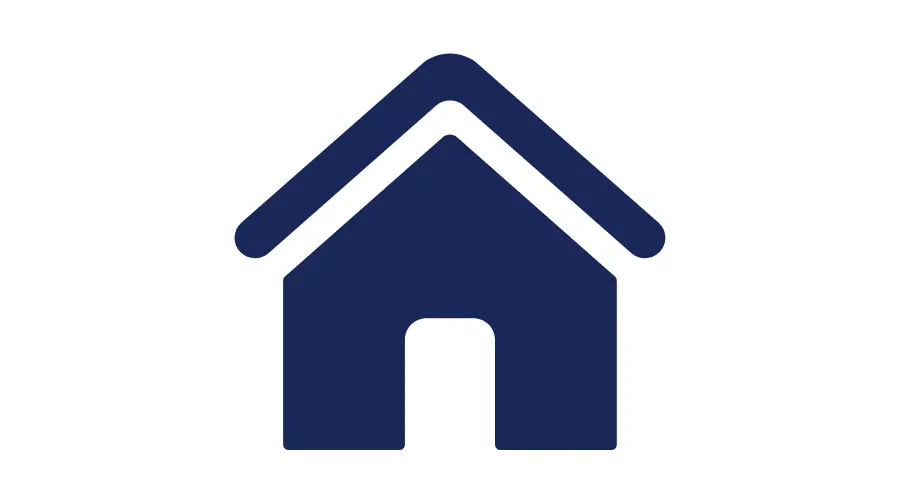Water safety (legionella)
Legionnaires' disease is rare but potentially a fatal illness. It’s caused by breathing in small droplets of water that contain the Legionella bacteria. This can lead to a cough, high fever, shortness of breath, and muscle aches.
While it’s associated with large buildings, like hotels, hospitals, and office blocks, Legionella can also grow in your home, especially where water sits still or isn’t used often. This could include unused taps, shower heads, and garden hoses.
Anyone can be affected, but some are more vulnerable:
- Over 45 years old
- Smokers or heavy drinkers
- People with lung, kidney, or immune system related issues
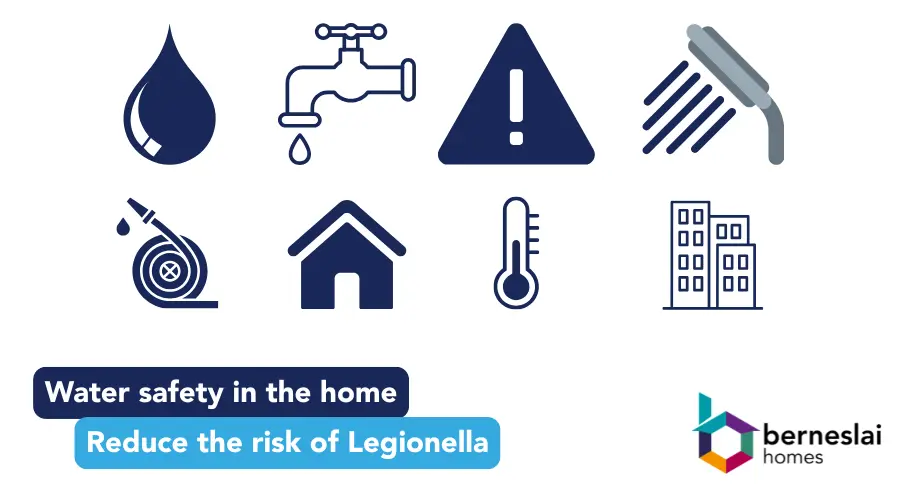
Where does Legionella come from?
Legionella bacteria are naturally found in water. In small amounts, they’re usually harmless. But inside buildings, they can grow quickly in:
- Warm water (between 20 °C and 45 °C)
- Stagnant water that hasn’t moved for a while, which allows sludge, rust, or scale to settle in one place. This gives the bacteria the nutrients it needs to grow.
- Dirty shower heads or taps where bacteria can multiply.
What you can do
Simple and easy precautions can help keep your water clean and safe:
Keep your hot water hot
- Hot water should reach at least 50 °C at the tap within one minute of running.
- Stored hot water should reach 60 °C for at least one hour a day.
- Don’t alter your boiler or hot water settings. They are set to maintain safe temperatures.
Keep your cold water cold
- Cold water should stay below 20 °C.
- If it feels warm after running for two minutes, let us know.
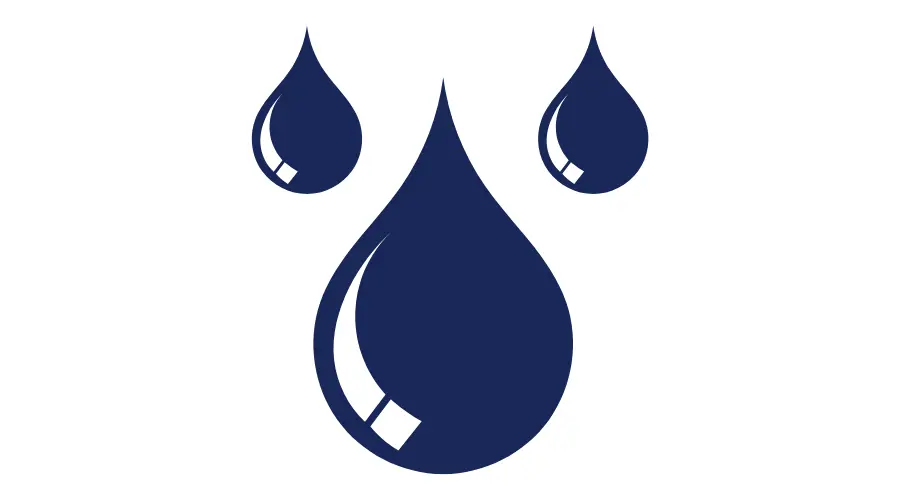
Keep water moving
Run all taps and showers, and flush toilets at least once a week, especially if they haven’t been used for seven days or more.
Keep things clean
Clean shower heads and taps frequently.
A standard store-bought disinfectant works well for cleaning.
If you can’t remove the shower head, cover it with a plastic bag, let the water run into the bag, then pour the water away slowly.
This will help reduce spray and minimise risk.
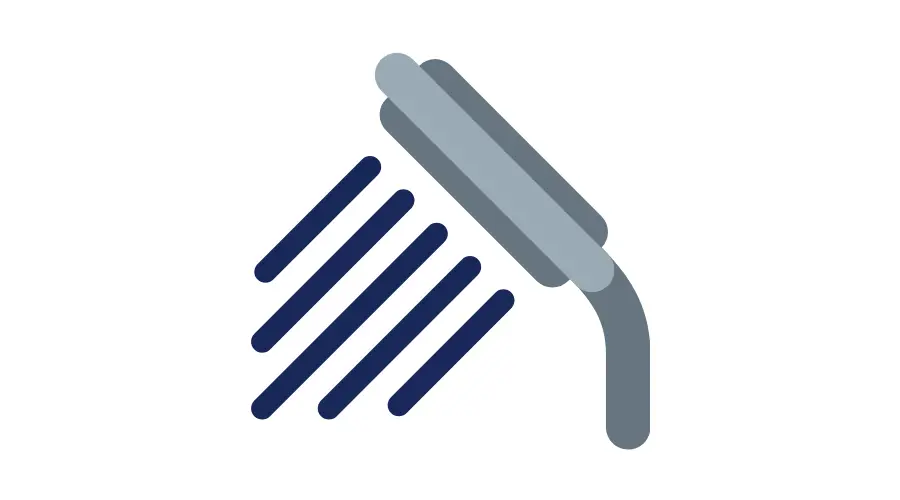
Medical equipment safety
If you use medical devices such as humidifiers, Continuous Positive Airway Pressure (CPAP) or Bilevel Positive Airway Pressure (BiPAP) machines, or nebulisers, always follow the advice from your healthcare provider or the manufacturer’s instructions. This includes using the advised type of water, keeping the equipment clean and well-maintained.
Vacant properties
If your home has been vacant for more than a week, run all taps and showers when you return. Flush toilets twice with the lid down before use.
Outdoor water safety
- Run outdoor taps at least once a week to reduce risk.
- After use, empty the hose pipes, coil them neatly, and store them in a cool place.
- If the hose hasn’t been used for a while, run it directly into a drain or cover the end to avoid breathing in spray.
Water butts
Water butts can contain dirty or stagnant water from roofs and gutters. To reduce risk:
- Empty and clean annually
- Keep out of sunlight by insulating or painting in a light colour.
- Don’t use water butt contents for sprinklers.
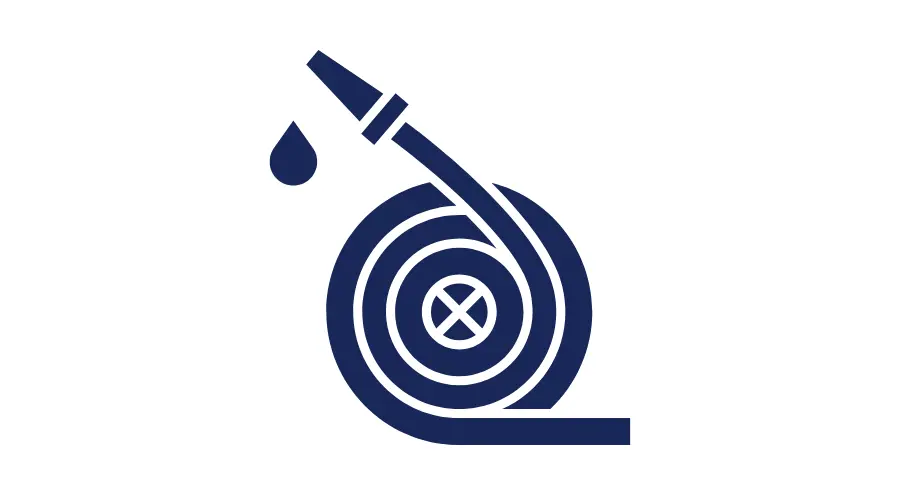
Compost
Compost can release dust that can be harmful when inhaled. To stay safe:
- Read health warnings on compost bags.
- Dampen dry compost before use.
- Avoid opening bags close to your face or using compost in confined spaces.
- Seal and store opened bags in a cool place.
- Wear a dust mask if needed.
Spa pools and hot tubs
Spa pools and hot tubs should be maintained according to the manufacturer’s instructions.
Let us know if your boiler isn’t working properly, cold water feels warm after running, or you notice discolouration in your water.
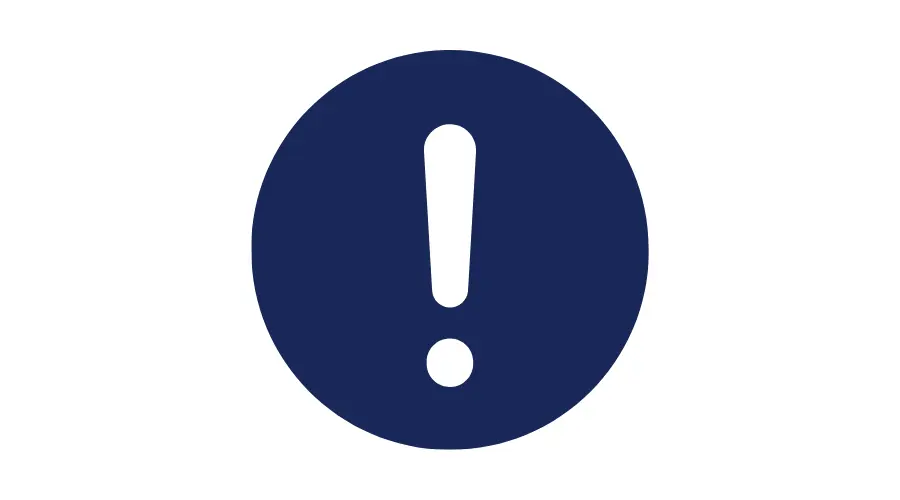
Reporting concerns
If the problem hasn't got any better, please contact our Repairs Hotline on 01226 787878. We’re here to help keep you safe and well in your home.
To find out more about how you can stay safe and well in your home, please visit our other webpages.
